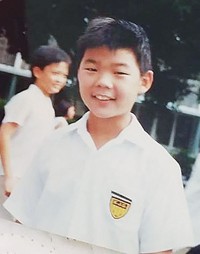Advertisement
Grab your lab coat. Let's get started
Welcome!
Welcome!
Create an account below to get 6 C&EN articles per month, receive newsletters and more - all free.
It seems this is your first time logging in online. Please enter the following information to continue.
As an ACS member you automatically get access to this site. All we need is few more details to create your reading experience.
Not you? Sign in with a different account.
Not you? Sign in with a different account.
ERROR 1
ERROR 1
ERROR 2
ERROR 2
ERROR 2
ERROR 2
ERROR 2
Password and Confirm password must match.
If you have an ACS member number, please enter it here so we can link this account to your membership. (optional)
ERROR 2
ACS values your privacy. By submitting your information, you are gaining access to C&EN and subscribing to our weekly newsletter. We use the information you provide to make your reading experience better, and we will never sell your data to third party members.
Careers
International Relations
Pointers help international faculty bridge cultural divide separating them and American students
by Sophie L. Rovner
April 16, 2007
| A version of this story appeared in
Volume 85, Issue 16

The behavior of American college students can puzzle a professor born in the U.S., but the likelihood of misunderstanding is even greater for a professor from another country. More and more U.S. institutions are hiring international faculty, but few books or articles are available to help guide these professors in their new country, according to Songwen Xie, a chemistry professor at Indiana University's campus in Kokomo.
During the American Chemical Society's national meeting in Chicago last month, Xie offered tips she had picked up during her years as a teaching assistant and professor in the U.S. Xie made her remarks before the Division of Chemical Education.
Xie came to the U.S. by way of Kunming, China, where she was born in 1977. After earning a B.S. in organic chemistry at Peking University in 1999, she moved to the U.S. to obtain a Ph.D. in organic chemistry at Southern Illinois University, in Carbondale. In 2005, she became an assistant professor in the department of natural, information, and mathematical sciences at Indiana University.
When she joined the faculty, Xie asked experienced colleagues for their advice on teaching. She also benefited from a book provided by her new university—"Teaching American Students: A Guide for International Faculty and Teaching Assistants in Colleges and Universities," by Ellen Sarkisian of Harvard University's Derek Bok Center for Teaching & Learning. Among the book's topics are the informality of U.S. students, sexual harassment, and leading a discussion group.
Drawing on these resources, Xie has crafted an approach that helps her bridge the cultural divide. On the first day of class, for instance, she tells her students how to pronounce her name and asks how to say theirs. "Once students know how to address you, they will not be afraid to ask you questions," she noted. Furthermore, "I tell them that they should not hesitate to let me know when they have trouble understanding my accent."
She also establishes rapport by having the students talk about their other classes and their majors and by telling them about her experiences in China and in graduate school.
Xie crafts an exhaustive syllabus that includes course policies on matters such as attendance, late work, and cheating. An in-depth syllabus provides a thorough guide for students while helping to protect international faculty, who "sometimes are not familiar with the rules or policies in U.S. universities," she said. "In my first year, I didn't know that I had to put a drop date on the syllabus, and that caused some problems." That experience taught her "that some students treat a syllabus almost as a legal document, and the course policies are something critical that I can fall back on when questions arise."
In her presentation at the meeting, Xie recommended that international faculty spend a lot of time preparing their lectures. The lectures need to be tailored appropriately for the audience. A professor shouldn't assume that students in the U.S. have a similar educational base as students in the professor's home country. "American students have a broader range of knowledge and interests," Xie noted, "but their depth of knowledge in chemistry, and perhaps in all science subjects, is not comparable to that of college students in China or some other countries."
Professors also should solicit student opinion on their teaching in the first few weeks of the semester, Xie suggested. "I started teaching at such a high level and fast pace that students complained," she said. "I slowed the pace accordingly." But she warned that professors must use their own judgment "when students complain that the workload is too much or the exam questions are too hard. Some of the students—fortunately there are not too many—want to take advantage of you because you are new and from another country."
Next, faculty should be aware of situations in which language is particularly important. "In organic chemistry, there are a lot of scientific terms that are new to students," Xie said. Professors who are not native English speakers should practice their pronunciation of these terms so that their students learn the words correctly.
Xie, who handles labs as well as lectures for her organic chemistry course, said she was initially reluctant to correct grammar and spelling mistakes in her students' lab reports. She felt that wasn't her responsibility. But her colleagues urged her to do so, and she now takes a more holistic view of her role as professor. "The students may not use the chemistry they learned from you in the rest of their lives," she explained, "but they will appreciate you for the way you taught them to think."
- Science Of Homeschooling
- As homeschooling catches on, demand grows for a broader spectrum of chemistry curricula.
- Leaving The Nest
- Former homeschool students reflect on their educational experiences.
- International Relations
- Pointers help international faculty bridge cultural divide separating them and American students.
- Help For Homeschoolers
- Opportunities abound for learning science outside the home.
- The HomeSchool Diner
- Additional, external, homeschool information.






Join the conversation
Contact the reporter
Submit a Letter to the Editor for publication
Engage with us on Twitter